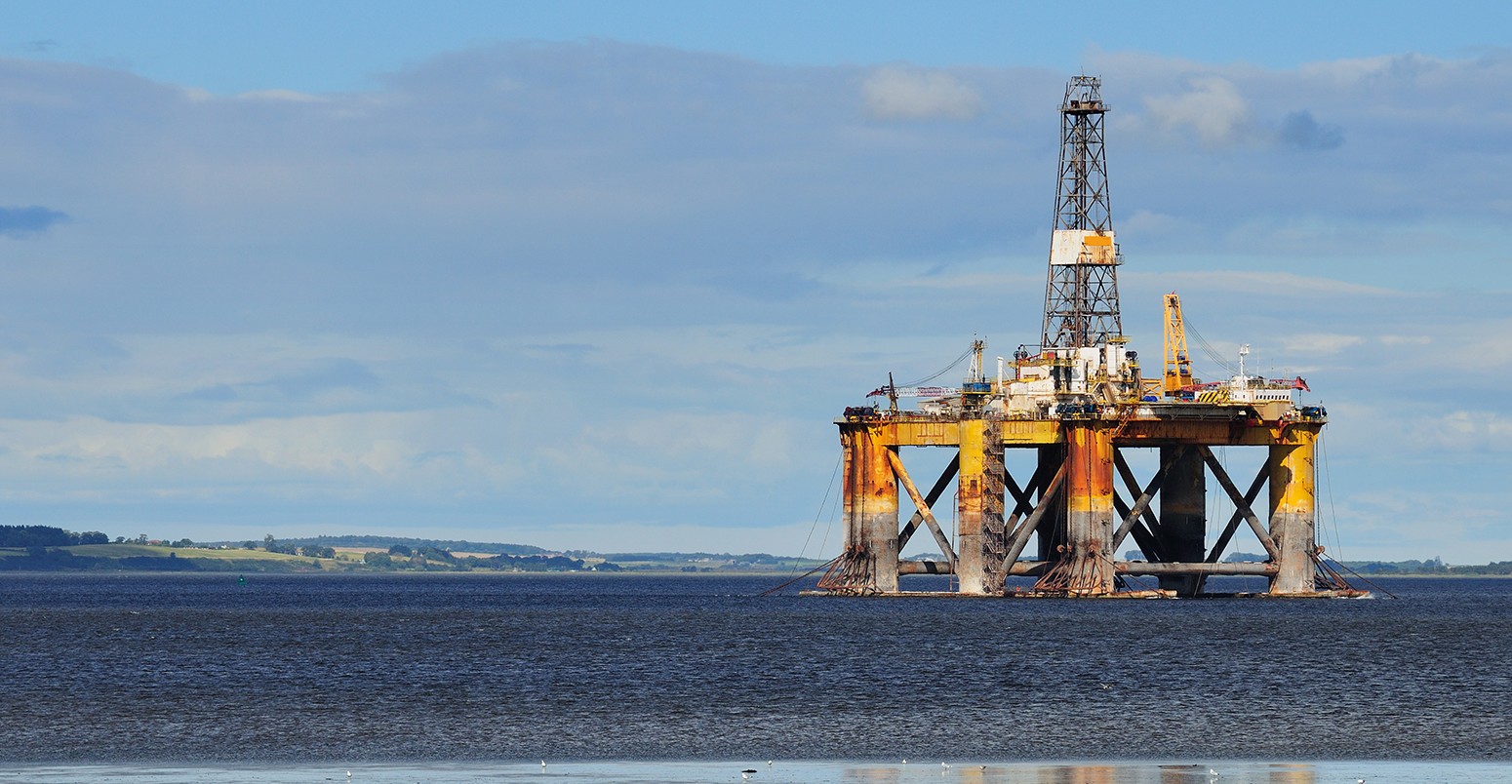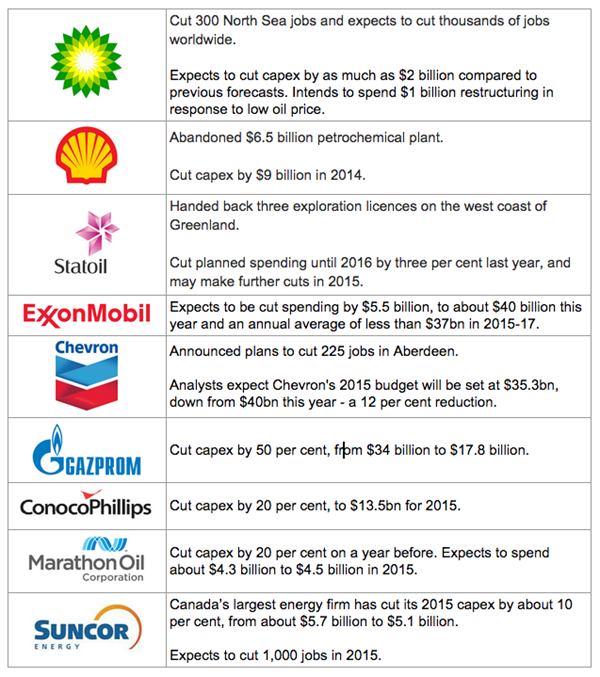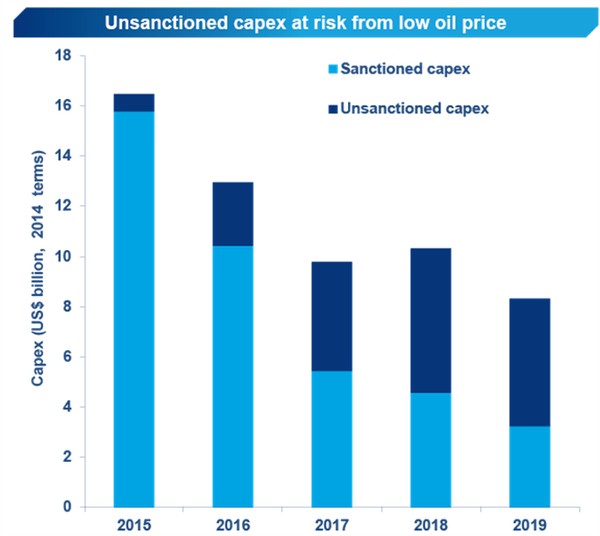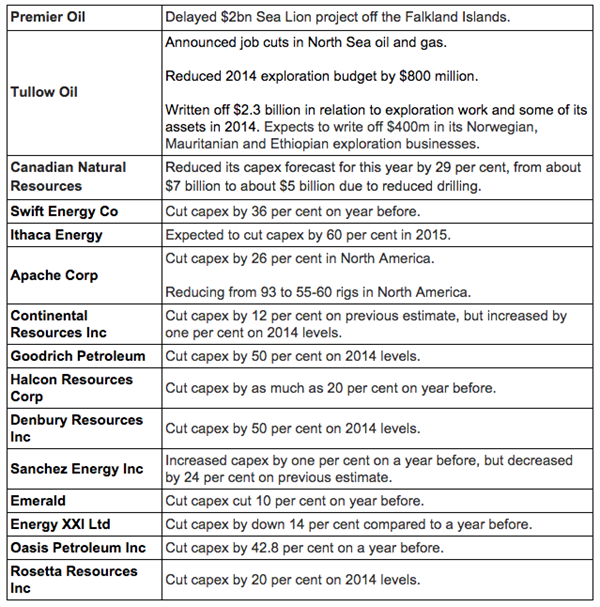
Oil industry cuts jobs and exploration budgets in response to falling prices
Mat Hope
01.16.15Mat Hope
16.01.2015 | 12:05pmOil prices slumped to a six-year low earlier this week. In response, oil companies around the world have been cutting jobs and exploration and production budgets.
The situation has become worrying enough that the UK government today ordered a review into how low prices put the North Sea industry at risk.
For months, analysts have warned of the effect such a price dip could have on the industry.
This week, a number of companies, including fossil-fuel giants Shell and BP, announced they were reducing their budgets for 2015 and cutting hundreds of jobs as a consequence of the low oil price.
Carbon Brief looks at the cuts some of the industry’s key players are making in response to the oil price drop.
Cutting budgets and jobs
The oil price is currently around $48 per barrel, down from a high of about $115 last July. Lots of oil companies have had to adjust their budgets as a consequence. In particular, they’ve had to revise how much they’re going to spend on new projects, known as ‘capital expenditure’, or ‘capex’ for short.
Companies put jobs at risk when they reduce their capex budgets, as fewer projects mean fewer workers are needed.
Here’s a list of the budget and job cuts recently announced by major oil companies:

Source: Various. See this Google Doc for full references.
And here’s what some smaller companies are doing:
Source: Various. See this Google Doc for full references.
It’s possible this is just the start of the industry’s cuts.
Consultancy Wood Mackenzie estimates that companies may pull the plug on new projects worth up to £55 billion. In particular, any planned project that has yet to have its funding confirmed – the dark blue bars on the chart below – is at risk if oil prices stay low:

Source: Wood Mackenzie
Carbon Brief has taken a detailed looked at which projects are most at risk in this previous article. But it’s worth a reminder that work by thinktank Carbon Tracker suggests almost $10 trillion of company investments are potentially at risk if the oil price is below $60. Production could be cut in half in 2015 if the oil price stays at around $50 per barrel, this chart suggests:
Source: Carbon Tracker
The main casualties are expected to be projects in particularly hard to reach spots, such as the Arctic. Such projects worth around $2.8 trillion in capex have a breakeven price of at least $100, Carbon Tracker estimates.
Climate impact
If companies are drilling for less oil, it’s potentially good news for climate change. If the world is going to avoid the worst impacts of climate change, lots of fossil fuels are going to be left in the ground.
A recent Nature paper, as well as previous Carbon Tracker and Intergovernmental Panel on Climate Change analyses, suggest about 80 per cent of the world’s fossil fuel reserves must remain ‘unburned’ if the world is going to prevent temperatures rising by more than two degrees above pre-industrial levels.
That implies a major transformation of the world’s energy system. But whether the low carbon energy industry will be hurt or helped by falling oil prices is still open to debate. Carbon Brief has previously looked at the ins and outs of that debate here.
Main image: Offshore oil platform, north Scotland.
-
Oil industry cuts jobs and exploration budgets in response to falling prices



